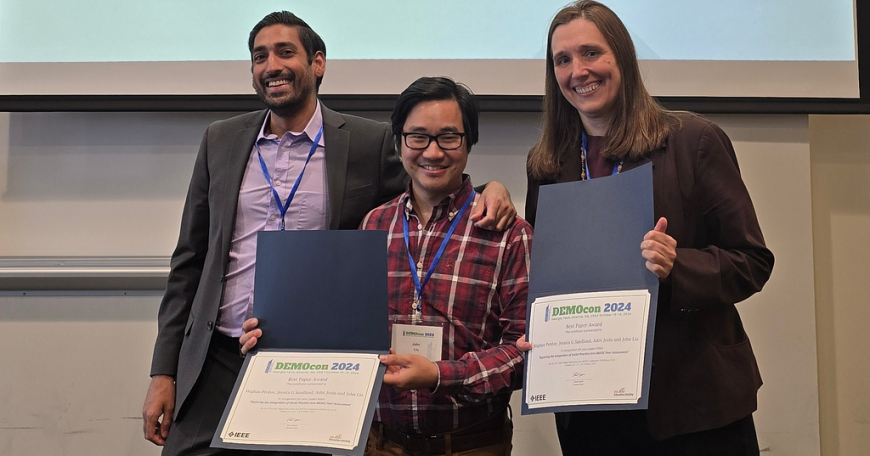
Why peer review benefits online learners socially and academically
By Katherine Ouellette
Did you know that peer review not only helps online learners feel less isolated, but it enables them to understand the material better, too? Recent research from MIT Open Learning revealed three benefits from peer assessments and discussions.
In “Exploring the integration of social practice into massive open online courses (MOOC) peer assessment,” learners self-reported that 1) giving and receiving feedback; 2) seeing each other’s work; and 3) applying knowledge helped improve their online educational experience. The article was recognized as Best Paper Award at 2024 IEEE Digital Education and Massive Open Online Courses Conference.
Meghan Perdue, research affiliate in political science at MIT, Jessica Sandland, principal lecturer in materials science and engineering and digital learning scientist at Open Learning, John Liu, lecturer in mechanical engineering and digital learning scientist, and Aditi Joshi, production lead and course moderator for the MITx MicroMasters Program in Principles of Manufacturing, analyzed 250 learner reflections across five different MOOCs to uncover information that would help them design valuable and effective peer review experiences.
Here, Sandland dives into why fostering connections between learners reinforces learning.
What problem(s) were you trying to solve with this research?
Since MOOCs began, they have been criticized for being unable to provide the expert feedback that a student can get in a good university classroom. And I’m not going to try to counter this argument. There are undoubtedly some learning experiences that are better in a high-quality university classroom than in a MOOC environment. However, we believe that evaluating MOOCs based on the fact that they’re not a university classroom is simply the wrong framework to use. Rather, we want to understand the benefits that MOOCs provide to their learners taken as their own unique type of learning experience.
Hearing directly from learners who have been asked a broad, open-ended question gives us the best opportunity to hear feedback that we wouldn’t necessarily have anticipated. If we ask learners more constrained questions, the learners’ answers will already be based on some of our preconceptions.
What were the most important takeaways from the results and why?
Learners report that this experience has helped them develop their communication skills, broaden their perspectives, and learn how to learn. This is where it gets really interesting, because the learners tell stories about their educational experience that are distinctly different from those you’d expect from a traditional university student.
For example, learners comment on the value of seeing how their classmates from all over the world apply the course material to their local contexts, allowing the learner to understand that a solution that works in one context or geographical area may not effectively work in another. This kind of learning experience is much harder to reproduce in a university classroom with a fairly homogeneous selection of students, but the diverse population of MOOC learners makes these experiences much more readily available in a MOOC environment.
How does this fit into the larger context of education and learning?
One thing we found was that the kinds of skill building that learners were reporting — developing communication skills, broadening perspectives, and learning how to learn — corresponded very closely to the sorts of skills people talk about when they talk about essential 21st century skills. In our paper, we did a comparison to the Organization for Economic Cooperation and Development’s key competency areas, but there are many different frameworks that define the knowledge and skills that a person needs to be an effective citizen in the 21st century. We observe many overlaps between these skills and those that learners reported developing through the peer review assignments.
Why peer review benefits online learners socially and academically was originally published in MIT Open Learning on Medium, where people are continuing the conversation by highlighting and responding to this story.

